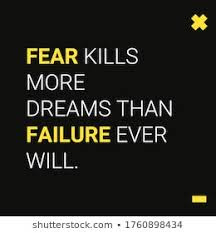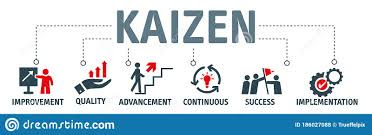Essential Mindset Traits of a Leader #2
- NEVER A LOSS, ALWAYS A LESSON!
Life is too short to spoil time by pondering over the things that we fail to accomplish. However, great leaders learn from the mistakes that they had made in the past and make it a lesson from which they learn something worthwhile. When you try something, only two things can happen. Either you succeed or you learn. Failure is never an option as long as you conceive it with right attitude.
Failure is important because it always teaches you a lesson. Therefore, it is said that success is a lousy teacher. Failure is more about analyzing your performance as a leader in our organization and to see what went wrong. Failure is about learning from mistakes.
Harry Potter author J.K. Rowling is one of the riches women in the world with a net worth of about $1 billion. But before publishing her first book, she experienced personal failure on an epic scale. Her manuscript was rejected by 12 publishing houses. However, it didn’t stopped her and she learned from failure and published her book.
In her inspiring 2008 speech, she spoke about the benefits of failure. She said, “ It is impossible to live without failing at something, unless you live so cautiously that you might as well not have lived at all – in which case, you fail by default. Failure taught me things about myself that I could have learned no other way.”
True leaders never get disappointed by failure because they know that failure always brings a lesson with it from which they learn and grow themselves.
LEADERS PERCEIVE DIFFERENTLY
A good leader always knows the importance of having a perception other than just what the situation might seem. Most of the times, many leaders have a misconception that other people in the job are their competition. However, sometimes the competition comes from a completely different area of life. A leader must perceive the competition not just from their viewpoint but from the opponent’s perception as well. To put this into perspective, let’s consider the case of Remington Typewriters:
The first commercial typewriters were introduced in 1874 and became common in offices after mid-1880s. And the very famous Remington typewriter quickly became an indispensable tool for practically all writing. It was widely used by professional writers, in offices, and in business. However, Remington typewriters always thought that Brothers typewriter was their competition. But they never saw the advent of the personal computers and never adjusted themselves to it which led to the fall of typewriters.
This example clearly shows us that a leader should not confuse ‘competitor intelligence’ with ‘competitive intelligence.’ They need to be aware of the needs of the people rather than focusing too much on their competitor. Because it gives them a new perspective to the same situations. They must learn to look at the game from opponent’s perspective !
THEY KNOW WHAT RISK
IS
One of
the biggest challenge for a leader of the millennium generation is the Risk
Management. Well, what is risk for you? Risk for me is when you don’t know what
you are doing or doing it because of strain usually by the people or their
expectations of you. It is necessary for a leader to take risk in there are of
expertise or should they play safe by avoiding the risk factor whenever
possible?
What
could be best to describe misconceptions about risk other than looking at the
investment world?
Billionaire
American Investor, business tycoon, and philanthropist Warren Edward Buffet
answers it the best way. He was a sober risk-taker from the beginning of his
investment career. He took a risk by buying 7% of the Coca-Cola company shares
in 1987 when it was not sailing so smooth opposing to what we see it today. He
made many risk investments like in GEICO and American Express. Buffett was
simply willing to take risk. He knew that it might be possible to lose his
investments but if he had not taken a chance, he wouldn’t have gained all those
profits!
Leaders
can learn from this example by applying the principles of taking and managing
risk. Buffet knew what he was doing and the job that he took in his command. Risk
Management is an important factor in the success of any organization and
leaders must have an understanding of the perfect timing to take risk rather
than doing it any time haphazardly.
It is
important for leaders to understand the situation carefully and take calculated
risks accordingly keeping in mind the needs of the market or their industry. If
you don’t take risk in your management, you might be deprived of the advantage
that you can have over your competitor and the milestones that you could
accomplish. The key is to identify whether the risk is acceptable or not. So
leaders, don’t shy away from taking risk simply because of risk.















































